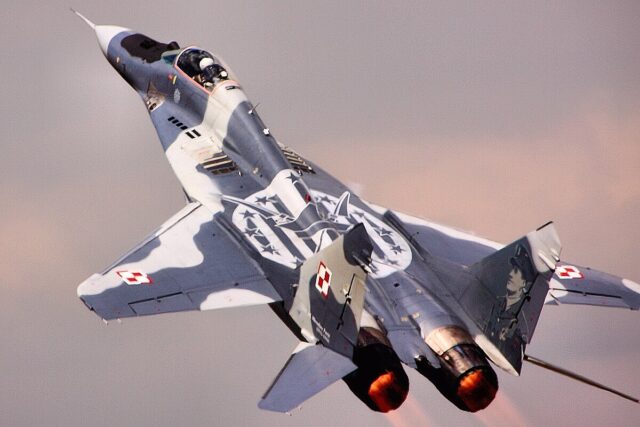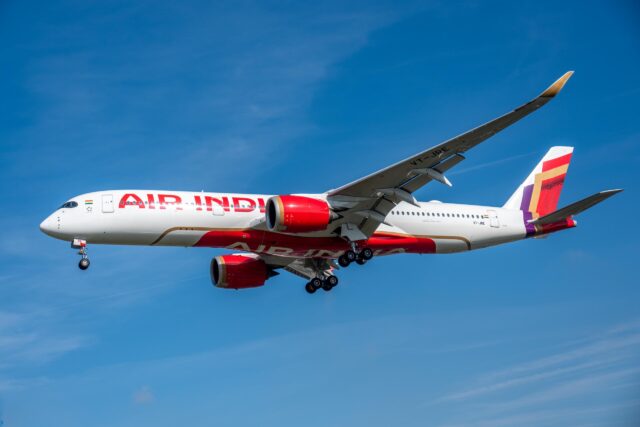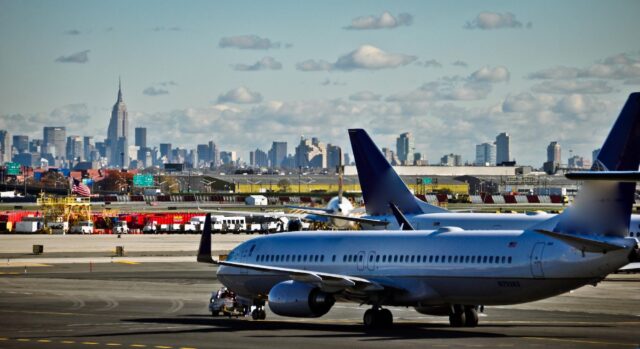Lufthansa and Air France-KLM CEOs unite to attack unfair competition from Gulf & Turkish airlines in Europe

October 21, 2025

Rivals in business but united in politics, the chief executives of Air France-KLM and Lufthansa have launched a rare joint attack on what they describe as “deeply unequal” competition from state-backed Gulf and Turkish airlines, warning that Europe’s open skies are eroding the continent’s sovereignty, jobs, and climate credibility.
In a joint interview in Paris, published both in Frankfurter Allgemeine Zeitung and Les Echos, Carsten Spohr and Ben Smith said the European Union had handed non-EU airlines “unprecedented advantages” while burdening its own carriers with environmental, regulatory, and geopolitical constraints.
“This is more than just an economic issue,” said Lufthansa CEO Carsten Spohr. “The geopolitical situation should make two things clear. It’s more important than ever to connect people, cultures, and economies to keep the world stable, and for us Europeans, it’s also about sovereignty. We can’t ensure our own defence, or meet our energy needs entirely ourselves. The least we should be able to do is connect with our own markets in the world.”
Qatar Airways in the firing line
The two CEOs saved their sharpest criticism for Qatar Airways, specifically targeting the EU-Qatar transport agreement. They say this has allowed the Doha-based carrier to gain unrestricted access to all European markets despite being heavily state-backed and operating from a tiny home base.
Spohr described the deal as “unprecedented in global aviation” and said it had “significantly worsened” Europe’s competitive position.
Smith pointed to the Amsterdam–Doha route as an example of “capacity dumping.” He claims that demand on the route stands at around 50,000 passengers a year, but that capacity is almost ten times higher.

“This connection enables Qatar Airways to funnel passengers who would otherwise fly directly with us through Doha,” Smith said. “Europe is giving away its market to airlines that bring no benefit to Europe and create no European jobs.”
He also denounced the EU-Qatar Open Skies deal as “negotiated in a highly questionable way,” referencing ongoing investigations into alleged corruption in the European Parliament linked to the so-called “Qatargate” affair.
“The fact that the deal hasn’t been cancelled or suspended is, for us, a scandal,” Smith said. “It offers no advantage unless you live in Doha and want to fly to Doha.”
Turkish Airlines and Gulf carriers accused of exploiting Europe’s open skies
While their strongest criticism focused on Qatar, both leaders included Turkish Airlines in their indictment of “Bosphorus and Gulf carriers” that have expanded exponentially by exploiting geography, state support, and open European market access.
In a social media post following the interview, Smith underlined the imbalance in stark numbers:
“In just two decades, Gulf and Bosphorus carriers have achieved extraordinary growth, fuelled by regulatory advantages and fiscal support. While Qatar Airways has expanded by 1005% and Turkish Airlines by 756%, Air France has grown by just 14% and Lufthansa by 16%.”
He said the result was “fewer nonstop flights from Europe, fewer jobs for EU citizens, and higher-emission flights,” calling on Brussels to “level the playing field.”
Air France-KLM and Lufthansa call for aviation policy reform in Brussels
The airline chiefs are demanding a new EU aviation framework that restores competitive neutrality, especially in environmental and market-access policy.
Spohr argued that SAF mandates currently apply only to flights departing from EU airports; a rule that increases costs for European airlines while exempting competitors based in Istanbul, Doha, or Dubai.

“We’re not asking for subsidies or protectionism,” he said. “We’re simply asking to be less hindered. Our competitors don’t have SAF quotas or equivalent taxes when they fly from outside the EU.”
Smith proposed a destination-based contribution system in which every passenger departing Europe would pay into a collective SAF fund, regardless of the airline chosen.
“That would help level the field,” he said. “Right now, European airlines are penalised for leading the sustainability agenda, while others fly longer routes via their hubs, producing more emissions and paying nothing.”
Consolidation seen as key to building ‘European champions’
Both executives reiterated calls for reciprocity on traffic rights and easier consolidation within the EU to create “true European champions” capable of competing with the large, vertically integrated airline groups in the United States and China.
It’s no surprise both airline group CEOs champion consolidation; both Air France-KLM and Lufthansa have been active participants in reshaping Europe’s airline landscape.
Lufthansa has long been the continent’s most aggressive consolidator, building a multi-brand network through its acquisitions of Austrian Airlines, Swiss, Brussels Airlines and, most recently, ITA Airways. The group’s strategy has centred on folding neighbouring flag carriers into a federated model that maintains local brands while centralising fleet, procurement and network planning.

Air France-KLM, meanwhile, has pursued a more flexible path to consolidation. After its early, ill-fated attempt to rescue Alitalia, it shifted toward minority stakes and joint ventures, deepening transatlantic ties through its partnership with Delta and Virgin Atlantic.
More recently, it has turned northward, taking a 19.9 per cent stake in SAS as part of the carrier’s restructuring and signalling plans to take majority control by 2026. The group is also vying for a share of TAP Air Portugal in Lisbon, which would strengthen its southern European and South Atlantic footprint.
“Europe must accept that we need global champions to safeguard its sovereignty,” Smith said. “The EU focuses too narrowly on its internal market. On the global stage, we’re losing.”
Spohr agreed, arguing that consolidation was “a win-win situation” that would ultimately benefit passengers through greater stability, lower prices, and sustained European connectivity.
“Look at the United States,” he said. “Customers benefit from synergies, employees benefit from stronger groups, and the airlines are competitive globally. That’s what Europe needs to understand.”
A united front for European aviation
While Lufthansa and Air France-KLM remain industry competitors, this joint action underscores the level of frustration in Europe’s aviation sector. that Brussels has prioritised market liberalisation over strategic autonomy.
Smith and Spohr insist their message is not protectionist but pragmatic; a call for the EU to recognise that climate goals, fair competition, and sovereignty are now inseparable.
As Smith wrote: “We stand for stronger European airlines, more jobs, more direct connectivity, and climate action that’s effective because everyone contributes.”
Featured image: Air France-KLM / Lufthansa / Route66 @Canva / AGN
















